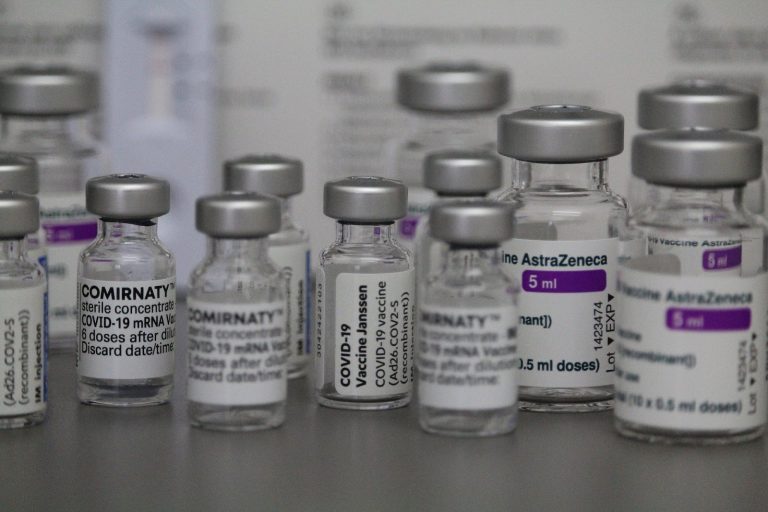A recent survey conducted by law firm Fisher Phillips found that most employers are not requiring their employees to receive Coronavirus Disease 2019 (COVID-19) vaccines. In fact, some businesses that introduced mandates have already been sued.
The survey, conducted between May 14 and 19, was answered by 600 employers. Of the respondents, 83 percent said that they are “neither mandating nor considering mandating that some portion of their workforce receive a COVID-19 vaccine.” The results were significantly different from those of a similar Fisher Philips survey conducted in January, in which only 64 percent of employers responded in the same manner.
“Back in January, more than a quarter of employers (27%) were unsure how they would proceed when it came to vaccine mandates. That number has now dipped to just 13%. And while nearly one in ten employers were either mandating or considering mandating the vaccine at the beginning of the year, now less than one in 20 employers (4%) said they were going to require the shot or were considering doing so,” according to Fisher Phillips.
Concerns about the legal consequences of vaccine mandates were expressed by 32 percent of employers. In comparison, 54 percent believed that everyone who wanted to get vaccinated in their workforce had already done so. One in ten employers stated that they were waiting for the U.S. Food and Drug Administration (FDA) to grant FDA approval and replace the current Emergency Use Authorization (EUA).
EUAs are granted by the FDA to “unapproved medical products or unapproved uses of approved medical products” in the case of emergencies. The Moderna, Pfizer-BioNTech, and Johnson & Johnson vaccines being distributed in the United States have all been given EUAs.
Success
You are now signed up for our newsletter
Success
Check your email to complete sign up
According to the Vaccines and FDA’s Vaccine Adverse Events Reporting System (VAERS), there have been 5,165 total reported deaths, 17,619 hospitalizations, 1,342 cases of anaphylaxis, 1,565 cases of Bell’s Palsy, and 1,892 heart attacks as of May 28, 2021.
Legal considerations
In April, the federal Occupational Safety and Health Administration (OSHA) published guidance stating that if an employer required employees to get COVID-19 injections, any adverse effects would be classified as “work-related” incidents, for which the business could be held liable.
However, OSHA changed its policy in May, which now states that employers are not required “to record worker side effects from COVID-19 vaccination through May 2022.” Alex Berenson, a former journalist at The New York Times, expressed disappointment at OSHA’s new stance.
“It’s hard to overstate how shocking this change is. The Biden Administration is the most liberal and union-friendly in generations, but if your boss tells you to take a vaccine or get fired, and you wind up in the hospital afterwards, no one has to know,” he tweeted.
On May 28th, the Equal Employment Opportunity Commission (EEOC) also updated its guidance on the issue of COVID-19 vaccination among employees.
While employers can require vaccination, they must provide “reasonable accommodations for employees who, because of a disability or a sincerely held religious belief, practice, or observance, do not get vaccinated for COVID-19.” The only exception would be if such accommodations posed an “undue hardship” on business operations.
A report published by America’s Frontline Doctors (AFLDS) states, “Emergency Use Authorization (EUA) means the products are investigational and experimental only, products approved for emergency use are prohibited from being mandated by federal law, and an individual must consent to the use of the experimental product.”
Indeed, the FDA’s EUA document states that an individual has the “option to accept or refuse the EUA product.” The EEOC stated that “it is beyond the EEOC’s jurisdiction to discuss the legal implications of EUA or the FDA approach.”
Lawsuits against mandates
Several businesses are facing lawsuits for mandating coronavirus vaccines. Recently, a group of 117 unvaccinated employees from the Houston Methodist hospital filed a lawsuit against the establishment. On June 7th, the hospital had issued a mandate for all 26,000 of its workers to get inoculated.
In the complaint, the workers accused the hospital of threatening employees with termination if they did not agree “to be injected with an experimental COVID-19 mRNA gene modification injection (‘experimental vaccine’) or be fired. Methodist Hospital is forcing its employees to be human ‘guinea pigs’ as a condition for continued employment.”
In December 2020, Rock Haven nursing home in Wisconsin issued a memo stating that employees who refused the jab would risk losing their job. However, after several employees contacted lawyers and threatened to sue the Rock County Board, the nursing home retracted its mandate. One lawyer warned county officials that they were “deliberately taking away each employee’s statutorily guaranteed right to decide for him or herself whether to accept or refuse administration of the COVID-19 vaccines.”
In North Carolina, former deputy of Durham County Christopher Neve sued the Sheriff for mandating COVID-19 vaccines for employees. The lawsuit asks the court to force the Sheriff to reinstate Neve with back pay and rule that the vaccine mandate “violates substantive due process and is unconstitutional.”















